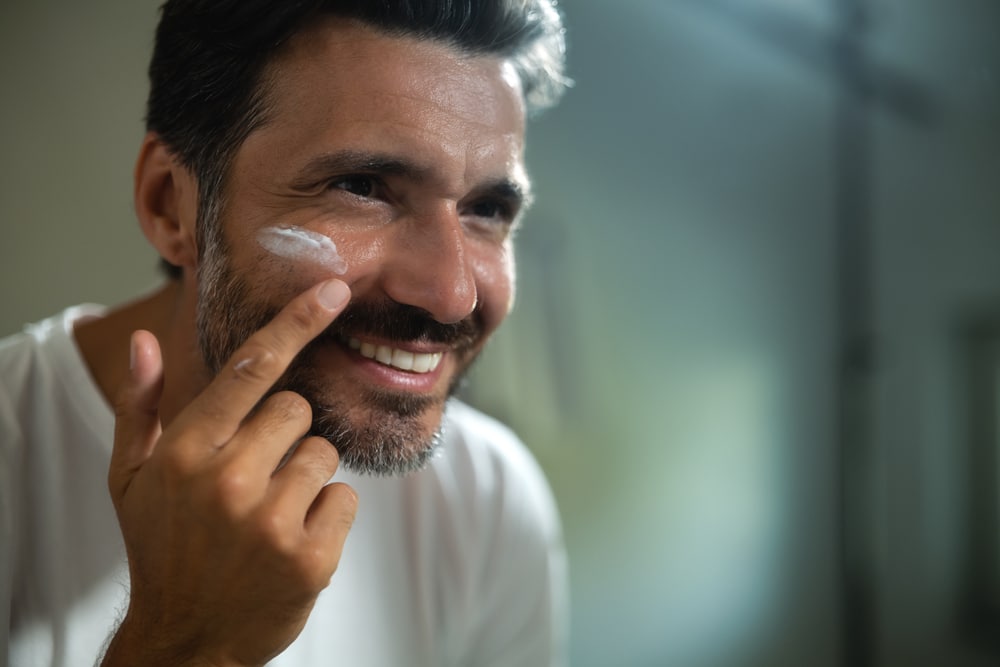When it comes to the sun, defense is your best offense. Regular sunscreen use and sun protection can help prevent skin cancer, premature aging, and other unwanted signs of photodamage. But in addition to blocking harmful ultraviolet (UV) rays, there's another way to achieve vibrant, youthful-looking skin: adding Tretinoin to your skin care routine.
If you're new to Tretinoin or considering using it, this article is for you. Dive in to discover the many benefits of this potent cream, what you need to know about Tretinoin and sun exposure, and tips to incorporate it into your routine.

What Is Tretinoin?
Tretinoin is a prescription-strength Retinoid, and it's one of Dermatology's most effective and powerful treatments. Derived from Vitamin A, Tretinoin is mainly used to treat acne and premature aging caused by UV exposure (also called photoaging). Tretinoin is available in different strengths and formulations, and it comes in both generic and brand-name versions (like Retin-A and Atralin).
Like other Retinoids, Tretinoin works by speeding up skin cell turnover. This helps new, healthier cells come to the surface, leading to smoother, more vibrant skin. It also increases collagen production and fades dark spots.
Tretinoin and Sun Exposure
When you first start using it, Tretinoin can cause some skin irritation, especially if you don't use it properly (more on that later). As your skin adjusts, it can also become especially sensitive to the sun. So, wear sunscreen every morning and reapply throughout the day. Sunlight exposure can make Tretinoin less effective, too, which is why it's important to apply it at night and be diligent about your sunscreen habit during the day.
To do more than just block harmful UV rays, choose a broad-spectrum sunscreen like EltaMD UV Clear Broad-Spectrum SPF 46. Formulated with antioxidants Niacinamide and Vitamin E, this lightweight formula can also improve skin tone and discoloration, adding to Tretinoin's benefits.
Does Tretinoin Help Sun Damage?
Over time, UV exposure doesn't just increase your skin cancer risk—it also slowly damages your skin and causes signs of premature aging. In fact, many changes associated with aging—like wrinkles, age spots, lax skin, and rough, uneven skin texture—are caused by UV rays and not the passing of time. An easy way to prove this to yourself? Compare the skin on the inside and outside of your arm.
The magic of Tretinoin is that it helps reverse many of these unwanted changes. It boosts collagen, evens skin tone and pigmentation, and smooths fine lines and wrinkles. One caveat is that it doesn't work overnight. For best results, most people need to use Tretinoin consistently for at least six months.
How to Use Tretinoin
The key to Tretinoin's effectiveness is using it correctly. Adding it to your routine isn't as simple as adding a new moisturizer or toner. Because it's strong, using too much too quickly can cause side effects that wreak havoc on your skin and may cause you to stop using it before you see any benefits.
Your Dermatologist will likely start you on a lower concentration to help your skin get used to it. From there, follow these best practices.
Use a Pea-Sized Amount
You only need a tiny amount of Tretinoin—about the size of a pea—to treat your entire face.
Apply at Night
Apply Tretinoin at night after washing and drying your face, and follow with a gentle, nourishing moisturizer.
Avoid Irritating Products
Hold off on other potentially irritating products, like astringent toners and exfoliants, while your skin adjusts.
Start with 3 Nights Per Week
Start by using Tretinoin just three nights a week for a couple of weeks, and gradually work your way up to every night. If you notice irritation—like redness or scaling—stop using it for a few days to give your skin a rest. Then, resume at a slower pace.
Consult Your Derm
If you have any questions or concerns, reach out to your Derm. They're on standby to help with your skin care concerns.
Pursuing Endless Radiance
Luminous skin year-round is possible. But, like with most good things, it requires a little patience and perseverance. Adding Tretinoin to your nightly skin care routine and using sunscreen every morning helps prevent and reverse sun damage at the same time. Stick with this routine for healthy, radiant skin!
